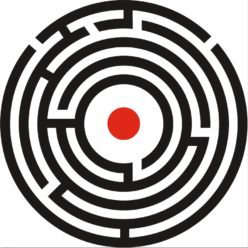One of things I’ve been pondering for some time is how to conduct correspondence via email. By “correspondence” I mean not just a note and a reply, but a recurring exchange of multiple messages that span months or even years. It seems to me — although I am thinking far back into my personal history — that correspondence by hand-written letters was much easier to maintain over the long term than correspondence by email.
There is something about email that is unsuited to an extended, punctuated, reflective exchange. Perhaps it is that, when one receives an email, the tool one needs to respond is at hand, as is the motivation to reply (if, at least, the message was a welcome and interesting one), and so it is easy to respond immediately. In addition to the superposition of tool and motivation, the reply, once composed and sent, will take effectively no time to reach the recipient.
In the days of written missives things seemed easier. Someone would write a letter to me, mail it, and then days later it would arrive. I would read it, start thinking about how to reply, and in the meantime the letter would sit somewhere semi-obvious where it served as a low-key prompt to reply. Since editing was difficult, I imagine (but do not claim to remember) that the process of composition was more deliberate, and perhaps spaced out over time. There was not any impulse to wrap it up and get on to the next item, as I sometimes feel with email. And of course, over the entire span between X authoring a letter to me, and my authoring a reply, time has passed and milled more grist to be folded into the reply. Perhaps there is an impendence mismatch between the rapidity of email, and the more measured pace of life.
Now, in theory, it should be easy to adapt: don’t reply to the email right away. But then one has the danger of forgetting, which, for me, is exacerbated by the intangibility of email. Paper, letters if my recollection is right, would sit on my desk, or perhaps in a holder or box, where I would occasionally come across them (if only when a letter from another correspondent arrived and needed a place to sit). Their physicality acted as prompt, and just as important, reminded me a bit of who they were from. Letters from my parents did not look like letters from my girlfriend; nor did letters from overseas (now there’s an old-fashioned word!) did not look like those from closer to home.
But all email looks alike – and there is so much more of it. The physicality and distinctiveness of envelopes has dissolved into a gigantic table of single-fonted text. Your email – because I decided that I wanted to respond to it later – was left in my in-box, and although I am not one of those who has thousands of emails, I do have dozens that are either (1) unread, (2) skimmed but I believe I’d like to read more deeply, (3) have information I need to refer back to, (4) finished with but need to filed, and (5) etc. Since I am pretty diligent about keeping my queue manageable, I do in fact stumble across to-be-replied-to emails, but still it feels too haphazard to be a satisfactory solution.
I hope that one day someone will design a ‘slow email’ system. Its characteristics might include: The email takes time to get where it’s going, with a bit of randomness thrown in (thus eliminating the expectation of an instant reply). If the email is not deleted or archived, it should occasionally bubble up to the top of one’s queue, or find other ways to be stumbled across. One other idea – to address the problem of quantity of email – is that there should be the equivalent of “first class,” where there is a small charge, perhaps a nickel (what can you buy for a nickel anymore?) – to send it. I believe this would do much to eliminate spam, or at least to separate the possible gold from the likely dross. Once it would have seemed utterly ridiculous to pay extra for slowness, but these days it seems less so.
My tangent has been far lengthier than intended… if this were a letter, at least a bulging envelope would have forewarned you.
Views: 11
